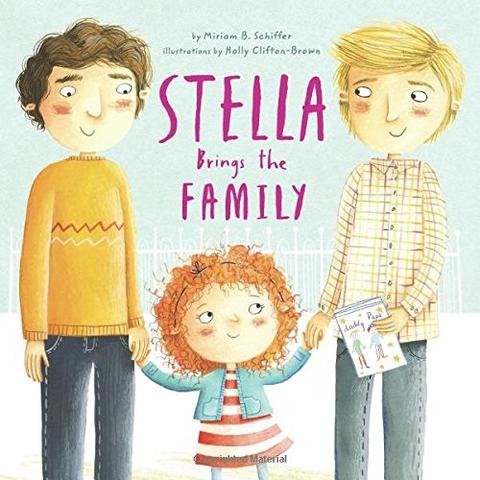By: Kevin Hujar and Delaney Earley
An estimated 14.8 million people in the United States identify as lesbian, gay, bisexual, and transgender (LGBT). This number does not account for people who identify as pansexual, gender-queer, asexual, or other gender identities and sexual orientations. Every June, this community and its allies come together to celebrate Pride Month in commemoration of the Stonewall Riots. It is a month to celebrate the successes, recognize the challenges, and affirm the importance of the LGBT+ community.

In the United States, the number of LGBT+ individuals are subjective. As of 2017, the most widely accepted statistic is that 4.5% of American adults identify as part of the LGBT community. As of the 2019-2020 school year, there are 355,156 students in Chicago Public Schools (CPS). Using this estimated statistic, we can approximate that over 15,982 students in CPS will identify as part of the LGBT+ community.
Why Pride Matters to WITS
In valuing empowerment and community, it is important to actively celebrate our students’ identities. WITS is committed to providing intentional literacy opportunities so that students can experience both windows and mirrors in the books they read. One crucial step toward expanding representation is offering a diverse range of books for students to explore their identity and learn about the identities of others. When characters in a story identify as part of the LGBT+ community, their identities are normalized, allowing students to make connections and empathize with the characters. Books that portray LGBT+ characters not only educate, but help individuals understand that these identities are not something you choose, these identities are who you are, and that everyone is deserving of acceptance and inclusivity.

An Authentic and Colorful Spotlight
As members of the LGBT+ community, we have experienced firsthand the powerful impact of seeing yourself in the stories you read and know why representation matters.
Kevin: As an LGBT+ youth, I did not have family members who identified as LGBT+. The schools I went to, and the educators that taught me, did not bring up conversations about identity, and I had no resources to tell me that what I was experiencing was more common than I thought. My identity conflicted with societal norms, and it brought me a lot of confusion and pain. Representation matters because I felt like something was wrong with me, I felt like a reject, I felt like I did not belong. If I had books that normalized the spectrum of gender and sexuality, I would have been relieved from the tumultuous discord between the conventional binary standards and my authentic self.
Delaney: Growing up, I had little exposure to characters whose identity explicitly mirrored that of my own. As a result, I became proficient in “reading between the lines,” looking for the slightest sign that would validate my life experiences. It was difficult to feel truly part of a community. Either the gender and sexuality majority, from which I knew I was different, or the LGBT+ community, in which I felt like the only member.
Throughout high school and college, as my personal network expanded, so too did my literary selections. Being able to relate and identify fully with a character in a story felt like turning on a light. I could now see and read about elements of my life that had previously felt wholly unique. Representation matters at any age, but the longer it takes to see oneself reflected positively in a book or story, the longer one might wait to truly celebrate their identify and feel pride in their community.
A Diverse Display
If you are looking to broaden your classroom or at-home library, these LGBT+ friendly books are a great place to start. These resources highlight the spectrum of gender identity and sexual orientation and are recommended by WITS Program Staff. These titles may be available at your local library, Chicago Public Libraries, or the following independent book stores: Women & Children First, Unabridged Bookstore, Semicolon, Pilsen Community Books, 57th Street Books, or Open Books.
- Books that celebrate diverse families
- Stella Brings The Family by Miriam B. Schiffer
- Mama and Mommy and Me in the Middle by Nina LaCour
- Love Makes a Family by Sophie Beer
- Baby’s First Words/Mis Primeras Palabras by Stella Blackstone, Sunny Scribens, and Christiane Engel
- And Tango Makes Three by Justin Richardson and Peter Parnell





- Books that explore gender identity
- The Witch Boy by Molly Knox Ostertag
- Julián is a Mermaid by Jessica Love
- Ho’onani: Hula Warrior by Heather Gale
- The Cardboard Kingdom by Chad Sell




- Chapter books that feature LGBT+ main characters
- Gracefully Grayson by Ami Polonsky
- Aristotle and Dante Discover the Secrets of the Universe by Benjamin Alire Sáenz
- The House You Pass on the Way by Jacqueline Woodson
- Star-Crossed by Barbara Dee




- Books written by LGBT+ authors
- It’s Okay to be Different– by Todd Parr
- Pride Colors by Robin Stevenson
- George by Alex Gino
- My Moms Love Me by Anna Membrino




*This list is not exhaustive, and some of these titles may fit into multiple categories.
Even if the above resources support just one person, we call that a success. Their inclusion in the WITS community and beyond matters. As queer people, representation matters and the representation found in these books validates our humanity and lived experiences. They provide a safe space for identify formation and celebration. For members of the gender and sexuality majority, these books provide an opportunity to practice empathy and better understand and recognize those in the LGBT+ community. It is our hope that such diverse literary selections are championed all months of the year, and that students feel included, accepted, and celebrated in the books they read.


